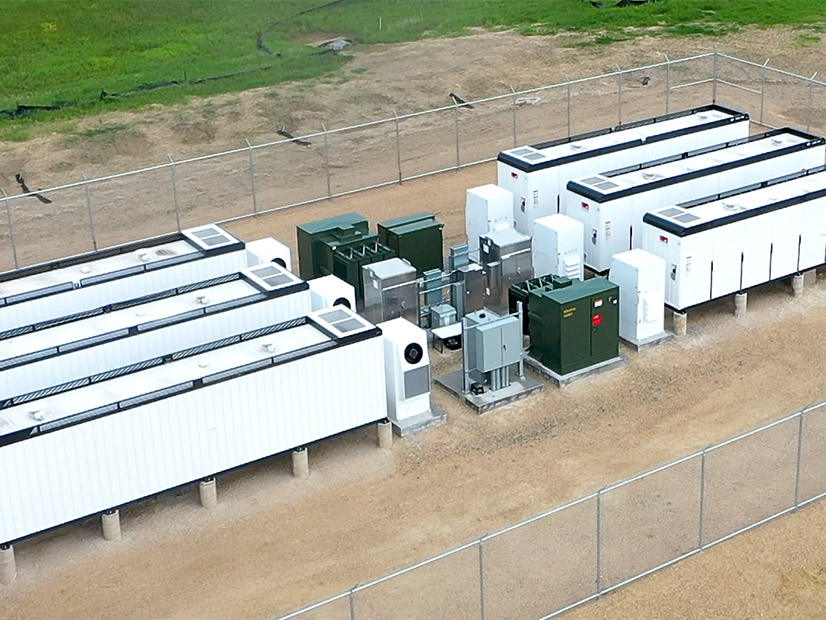Protests and endorsements have turned up in response to MISO’s second attempt with FERC to annually cap project submittals to its interconnection queue based on a megawatt value.
MISO filed its intentions with FERC in late November to impose a yearly cap of 50% of the non-coincident peak per study region in its interconnection queue (ER25-507). RTO staff have said repeatedly that a cap would make their interconnection studies manageable. MISO first filed for a cap in late 2023 but was rebuffed by FERC. (See MISO Queue MW Cap to be Filed Sans Regulator Exemption for RA Generation Projects.)
Multiple stakeholders weighed in with FERC over the revamped proposal, with some claiming the cap would introduce a discriminatory process that would inject more uncertainty into the queue.
“Rather than help MISO manage its rapidly growing queue, this proposal would add uncertainty and create a rush of projects seeking to be included in the next available capped queue cycle,” the American Clean Power Association, Advanced Energy United, the Solar Energy Industries Association, the Southern Renewable Energy Association and Clean Grid Alliance said in a joint protest. The groups said MISO’s cap filing didn’t contain any elements that would speed up queue processing, like offering more schedule certainty or providing network upgrade cost estimates earlier.
“Instead of addressing these underlying issues, MISO has simply opted to prioritize shrinking the queue size over boosting queue throughput without any evidence that smaller clusters will be processed faster than larger clusters,” they argued, adding that it’s a “false assumption” to assume that a more modest queue equals a more accurate and faster queue.
Shell Energy and its subsidiaries said the cap “misses the mark” because just a few interconnection customers are responsible for the overwhelming number of requests in recent years.
“Given this fact, it is unjust, unreasonable and unduly discriminatory to impose sweeping restrictions on the majority of interconnection customers not contributing to the problem,” Shell argued. The company suggested MISO craft queue caps by corporate family, which would have the same effect on queue size without punishing all developers “for the behavior of a few.”
On the other hand, the Organization of MISO States called the cap a “necessary mechanism — at least in the near term — to ensure MISO can efficiently manage” an oversaturated interconnection queue.
OMS pointed out that the 171 GW of interconnection requests MISO received in 2022 and the 124 GW that followed in 2023 aren’t sustainable and aren’t conducive to realistic study results.
“The sheer size of MISO’s interconnection queue has resulted in unreliable, outdated and inaccurate network upgrades identified early in the study process. It is simply infeasible to study clusters of resources that when combined exceed MISO’s all-time peak load,” OMS wrote.
However, the Mississippi Public Service Commission and Louisiana Public Service Commission objected to MISO’s cap plans because MISO didn’t include a cap exemption for projects that further states’ resource adequacy targets. MISO’s first, failed attempt to instate a queue cap featured an exemption for regulators’ pet generation projects. The grid operator since has morphed the promise of a cap exemption for critical projects into the creation an exclusive express lane for projects that preserve resource adequacy. (See MISO Outlines Plan on Fast-track Queue for Resource Adequacy.)
But the two state commissions said exclusion of the exemption this time around “usurps the exclusive authority of state retail regulators and their jurisdictional utilities to plan for adequate generation resources needed to provide resource adequacy within the jurisdictional footprint.”
Mississippi and Louisiana regulators said FERC should reject the cap or direct MISO to reintegrate the exemption into its plan. They said without a cap, MISO’s queue could limit or purge dispatchable resources like natural gas and nuclear units that will keep resource adequacy from degrading.
Despite the MISO South states’ opposition, Entergy and Cleco lent support to the cap. The two said MISO’s interconnection models are too bogged down to produce accurate study results for interconnection customers.
Duke Energy likewise supported the cap and said many of the recent rounds of submittals likely are “speculative projects with high withdrawal rates.”
Alliant Energy didn’t outright oppose the cap but said it harbored concerns that “serious risk” would remain on load-serving entities’ ability to interconnect projects in a timely manner. It asked FERC to hold off on a final decision on the cap until it also could weigh MISO’s upcoming expedited queue lane for resource adequacy projects. MISO plans to file the proposal for fast-track queue processing with FERC sometime in the first quarter of 2025.
MISO chimed in to remind stakeholders that the prior regulator exemption was part of a “previously rejected process that is not currently before the commission and not relevant for any purpose here.” MISO said it was being unfairly forced to defend its current filing based on the rejected one.
The RTO also said references to and making the cap contingent on its upcoming filing to fashion an RA expedited queue process are misplaced because the “budding” plan remains under development in the stakeholder process.
“MISO should neither be required to defend proposals previously rejected by the commission in other dockets, nor should it be required to expand upon a … process that is still in development between MISO and stakeholders,” MISO said.
MISO said the cap proposal at its core merely asks FERC to “simplify a math problem — MISO’s study process — by limiting the number of variables — interconnection requests — it must solve for in each queue cycle.”




